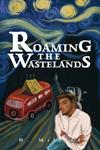The LA TIMES ran a half page obit this week about a guy named C. P. Ellis
who just died of undisclosed causes at the age of 78 in Durham, North
Carolina.
Ellis rated all the ink, in the eyes of blenders at least, because he was
once a member of the KKK but switched sides to become a high profile civil
rights activist and a friend of female black civil rights advocate Ann
Atwater. His switch was used as propaganda by assorted blenders.
Accompanying the obituary was a large photo of Ellis, who suffered from
Alzheimer's disease, sitting in a wheelchair holding one of Atwater's
hands while Atwater has her other hand on Ellis's shoulder while smiling
kindly at Ellis.
"Hello, Joe. You can call me Fuji. I just want to be your friend."
The Ellis story is not an isolated one and is remarkably similar to others
we have seen in which some self-proclaimed neo-Nazi or White supremacist
has switched sides and who usually has a friendly Rabbi or friendly Black
as their new best pal.
What makes these switchers tick? Why are they true believers in "this"
today but then true believers in "that" tomorrow?
The answer lies not in the rightness or wrongness of the views held
either before or after the switch, but in the personal psychology of the
switchers and in human psychological principles generally.
As types, the switchers are a little like bank robbers who have taken
hostages, and their new best friends are like well trained police hostage
negotiators who take advantage of psychological weaknesses and who use
psychological principles of personalization to get the hostage takers to
release their hostages.
Many of these switchers have inferiority complexes and inadequate
personalities and have little self-esteem. For the most part, such people
have a need to overcome their feelings of inferiority and inadequacy. Some
do this by joining groups that make them feel important either in the
larger society or in their own smaller society. Most of these people come
from poor economic and social backgrounds that have made them vulnerable
to certain forms of psychological manipulation. Most have become true
believers, in both instances, because of a need to be loved or wanted or
to feel important. Most have easily countered cartoonish demonizations
and broad generalizations of those they oppose. They usually see "them"
not as individuals but as a unified group that is evil or bad. Then, when
they sit down with a kindly individual from this demonized group, they
suddenly start thinking that these are people "just like me," and they
often then discard their earlier views even if the earlier views might
have been correct at their core and in a statistically significant manner.
Because of their psychological makeup, many of these switchers are easily
suggestible and are susceptible to brainwashing type manipulations.
A typical scenario in most of these switch cases is that a single friendly
person from the opposing group will befriend the person to be switched and
this person from the opposing group will thus put a friendly human face on
the opposing group. In the case of Ellis it was a friendly black woman.
He met and debated her in a highly charged and emotional situation and he
discovered that she was human and no more evil than any other human.
Suddenly, he had to reconcile this new information with the old
information. In the case of some neo-Nazis, as already mentioned, it's
sometimes a friendly Rabbi who causes the switch.
"Say, Joe, can I offer you a cigarette? They're American. You know, Joe,
I went to school in America and then I moved back here to Japan.
Ellis's story provides a pretty good example of the fact that when one's
beliefs are not rooted in truth and a deep understanding of existence
that these beliefs are often easily overcome with just a little friendly
talk with someone who acts as a sympathetic and understanding friend.
"Hey, want to see some pictures of my kids, Joe? Say, do you like
baseball, Joe?
According to his obituary, Ellis grew up in poverty in Durham and was the
son of a millworker. He got married at 17, and soon had three children,
including one who was born blind and retarded. He worked two jobs but
still had a problem paying his bills. Ellis said that he soon became
bitter so he joined the Klan and that this made him "feel like somebody."
"I love America and I want to be your new best friend. I like and respect
you Joe. I think you're probably a pretty important guy even if your Army
treats you like dirt."
It was during a 10 day period of 12-hour talks in 1971 about violence that
was occurring as Durham tried to integrate its schools, that Ellis
switched sides. As Ellis put it, "During those days it became clear to me
that she (Ann Atwater) had some of the identical problems that I had, and
that I'd suffered like she had and what...had I spent all my life fighting
people like Ann for?"
"You know, Joe, we need to stay up all night and talk about this stuff. I
have a wife and kids and bills and other problems, just like you. This
war is a terrible thing, Joe. The way I see it is that a bunch of rich
guys are just taking advantage of us little people. You know, I may have
yellow skin and squinty eyes, and you may have white skin and round eyes,
but if we're cut, we'll both bleed red blood, Joe. We're the same, you
and I. We're different from the rich guys. We're just a couple of working
stiffs. How about those Brooklyn Dodgers, Joe?"
Anyway, after his conversion from a segregationist to an integrationist,
Ellis finally got his high school diploma and became a union organizer in
a union with, you probably guessed it, a majority of black members. It is
clear from reading about Ellis, and some of the things that he said, that
he came to believe that rich or upper class whites, not blacks, were his
enemy. In other words, Ellis switched from racial allegiance to economic
and social class allegiance. It's probably worthwhile noting at this
point, but just in passing, that Karl Marx also thought of humans
primarily in terms of economic and social classes rather than as members
of genetic groups.
According to the Times' obituary, Ellis once told author Studs Terkel
"These days, when you walk into a plant with those black women and butt
heads with professional union busters, college men, and we hold our own
against them. Now I feel like somebody for real." From this we can see
that Ellis was now identifying himself with blacks almost completely. When
he said "college men," you know he meant "rich white college men," and
when he said "And we hold our own against them," he was saying "We working
class people are unified and we beat the rich white guys."
Close readers will also have noticed that Ellis had earlier talked about
joining the Klan and feeling like somebody, and then when he became an
organizer for a mostly Black union he repeated the same thing. From
this, it's probably safe to assume that Ellis's real psychological
motivation both in joining the Klan and then in becoming a civil rights
activist was to overcome his personal feelings of inadequacy and to feel
like somebody. Thus, neither his pro-white and then his pro-black
positions had anything to do with deeply held beliefs. Had a third
alternative come along to make him feel like somebody, he probably would
have switched again. So, while blenders may want to point to Ellis as a
great example of how a White "racist" can change, it seems clear that
Ellis never really had higher White consciousness at all.
"Say, Joe, all those snooty college boys who are your officers who sent
you here to kill my kids aren't really on your side. We're both working
men, Joe. We're the same. We need to stick together against those big
shots and let them know we're not going to be pushed around anymore. "
So, how did Ellis get all those anti-Black prejudices in the first place?
"People have all these preconceived ideas," he said in 1999. "When I
joined the Klan, I thought every black person in the country was evil and
dirty. I just assumed it. We are taught these things as children...and
never get rid of them."
"Good morning American soldiers and sailors, this is radio Tokyo. And,
direct from Tokyo....here's Tokyo Joe!"
What's the lesson for Whites who are trying to stop the genocide of White
people on this brown planet? It is that true belief that is able to
withstand the pressures to switch and blend should be honest and
intelligent and should not be based on ignorant stereotypes or false
information. Such true belief can be based on scientific facts and on
religious beliefs, but all Whites with White consciousness should
understand that all humans have their strengths and weaknesses. Most
people of all races love their kids. Most people of all races want the
best for their families. Most people of all races have bills and problems
in their lives. Most people of all races have worries and concerns about
many of the same things. And, Whites with White consciousness also need
to know that there really are class distinctions that matter in our world
and that these class distinctions can have the negative effect of trumping
genetic kinship if we let them rule our thought processes and not see them
as secondary to our true genetic natures.
As illustrated by C. P. Ellis and others, if one comes to a pro-White
position based on blind prejudice, then it is often an easy thing to burst
that balloon of prejudice and cause a switch.
Finally, what of this word "hate" that, while not used in Ellis's obituary
to describe his earlier position, is implicitly there, and which is so
often, and often so wrongly, ascribed to those with White consciousness
and which underlies most talk about Whites wanting to remain White?
Hate, as the term is usually used, seems misplaced when we talk about the
struggle for White survival. Do we hate germs that would destroy us? Do we
hate wild animals that would destroy us? Of course not. White survival is
not about hate. It is about love for our own kind and it is about
awakening other Whites to the truths of existence so that they may take
the necessary steps to work for our survival as a distinct people.
Live long and multiply. |


